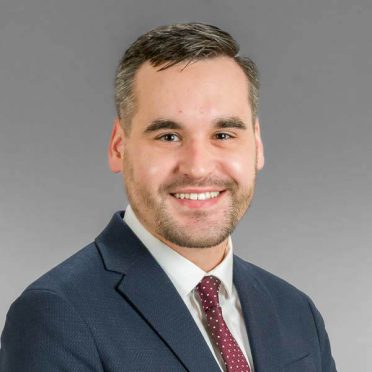A directive from the Texas governor that criminalizes medical treatments for transgender youth and allows their parents to be investigated for child abuse could unleash a wave of mental health concerns for anyone who suppresses their identity in response.
Dr. Derek Fenwick, a psychologist with Young Adult Services – The Right Track/LGBTQ Specialty at the Institute of Living, part of the Hartford HealthCare Behavioral Health Network, said he was sadly unsurprised by directive, which already sparked investigations.
“I was appalled at the thought of this being proposed,” he said. “It truly is scary for all, but especially sexual and gender minority youth.”
According to the directive, families can be investigated for allowing youth to pursue gender affirmation treatment. For the transgender youth involved, the message is bold and traumatizing rejection, Dr. Fenwick noted.
“It can really negatively affect the mental health of these youth because it is just overt rejection, and we know how damaging a lack of support can be,” he said.
The result, he added, can be negative mental health outcomes and increased internalization of:
- Shame.
- Isolation.
- Anxiety.
- Depression.
- Suicidal ideation.
“My biggest concern is this will make kids feel rejected and how that will impact them,” Dr. Fenwick said.
While some Texas parents said they will move to allow their children to freely express their identity, other youth may be forced to internalize their identity, which Dr. Fenwick said can be harmful and cause self-rejection.
“One may try to ‘pass’ and hide their true identity out of fear of stigma, discrimination and judgment, but such concealment hinders oneself and can cause internalized homophobia or transphobia,” he said.
The directive can also confuse youth who want to express parts of their identity, but know they could be reprimanded or punished.
“Even if the punishment is not overt, these sexual and gender minority youth are constantly battling against societal and binary views, like swimming upstream in a downstream world,” Dr. Fenwick said.
The situation is stressful for entire families, and he wondered if some parents may withdraw support of treatment to comply with the state directive. The Texas move also directs teachers, doctors and others mandated to report child abuse to turn in youth seeking gender affirmation, something Dr. Fenwick called “unfathomable.”
“We know the research supports gender affirmative care and not allowing providers to help these kids is a travesty,” he said. “I cannot think about how, as a psychologist, I would not be allowed to provide that care. It also makes me worry that other states could try to adopt this idea as well.”



